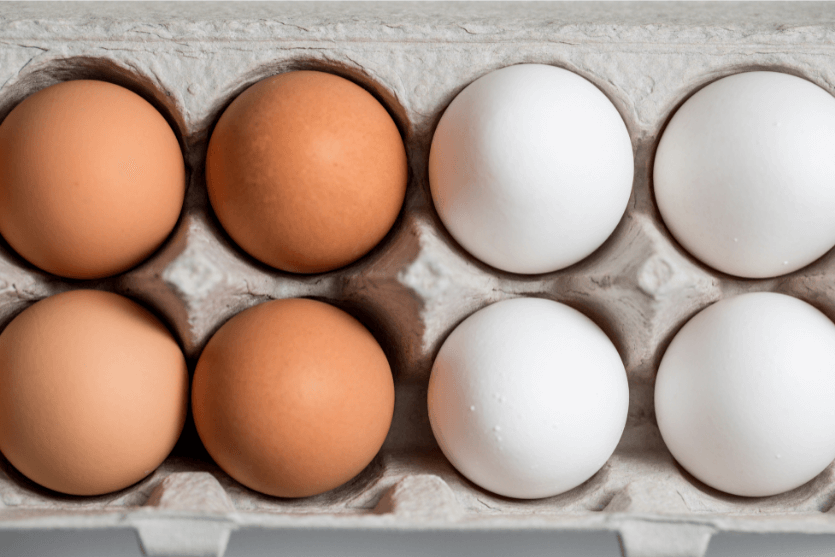Nutritionally, there is no difference between white and brown eggs. The difference lies in the hens: white eggs come from white-feathered hens, while brown eggs come from brown-feathered hens.
Brown eggs tend to be more expensive because brown hens are larger and generally require more feed.
Watch fourth-generation egg farmer Josiah explain.
